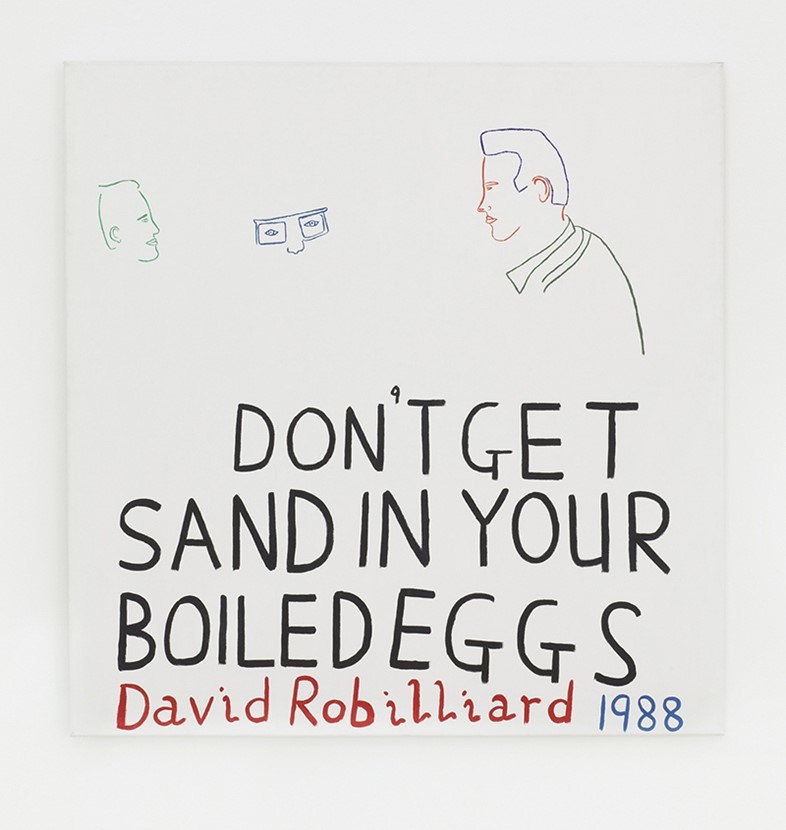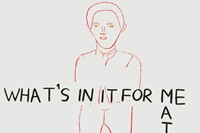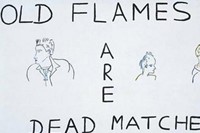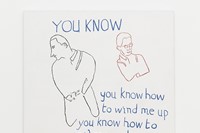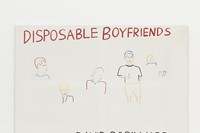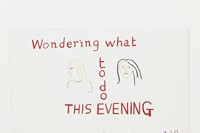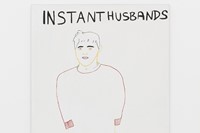The witty, wine stained words of David Robilliard, artist and poet of the 1980s gay scene and Hoxton excess, are celebrated at London's ICA
The boundary between art and humour has a very high fence, guarded by an army of stony jawed critics who work to ensure that few artists can cross safely into the world of wit and whimsy without suffering a pounding. Yet David Robilliard, the self-taught, Guernsey-born artist who came to London in the 80s, teetered happily along the boundary, creating his own line in comedic visual poetry, scribing witty, poignant musings on sex, friendship and the urban experience onto square white canvases illustrated with spare, slightly absurd figures.
"David Robilliard was dubbed by his mentors Gilbert & George as 'the new master of the Modern person'"
At first glance, Robilliard’s paintings – a show of which are currently on show at London’s ICA – are just great fun. Silly in parts, witty in all, puerile, ironic, world weary. “I asked for Adonis,” one sighs, “Not a doughnut.” But coming closer and looking harder, the works open up an insightful vista of a transformative period both in London’s artistic history, and in the story of the capital’s gay scene. Robilliard was working and playing at the heart of both, serving as protégé and assistant to Gilbert & George, living with fellow artist Andrew Heard in the then nascent hipster paradise of Hoxton Square, enjoying the sexual liberality of the 80s to its fullest extent. His poems and paintings tell of hangovers and “disposable boyfriends”; they offer elegies to what might have been – “Our moment came and went and like a drop of water in a desert it came to nothing” – and positivity in the face of pessimism – “Life isn’t good it’s excellent.” He flummoxed the establishment with his refusal to take it or himself too seriously, sauntering through society with his mind on passion and fun, dubbed by his mentors Gilbert & George as “the new master of the Modern person.”
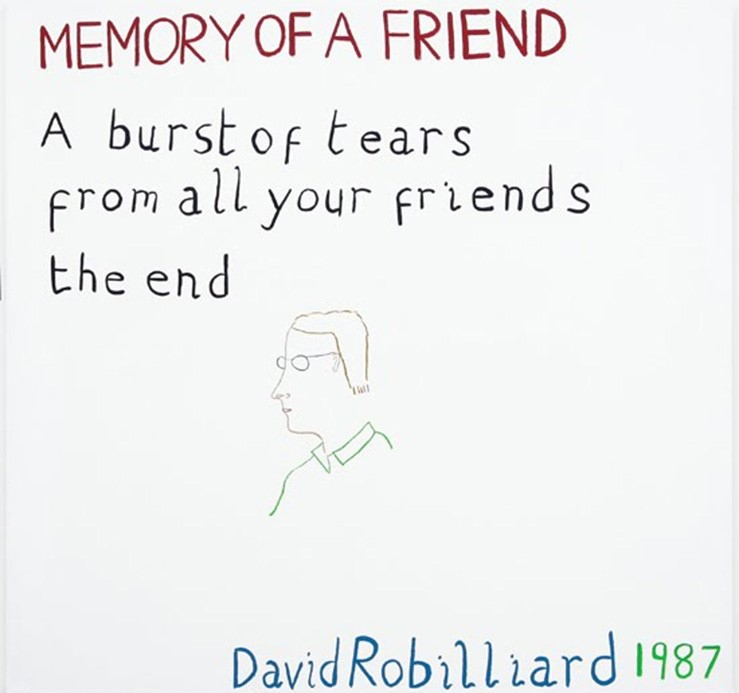
However, the time he was so elegantly aphorising could also be sad, bleak and difficult. Like so many gay men of the 80s, he contracted AIDS, which carried with it a death sentence, and died at just 36. The ICA’s show focuses on the pictures he created during his last two years, in a flurry of activity informed by his illness, representative of an artist coming face to face with mortality. Entirely free from self-pity, but with their bright visual innocence offset with a strong dose of lust, cynicism and sadness, they act as a nuanced, touching portrait of an artist who died far too young, but whose youth and lewd humour did not prevent him from carving a unique place in an overcrowded artistic firmament.
David Robilliard: The Yes No Quality of Dreams is at the ICA until June 15.
Text by Tish Wrigley
